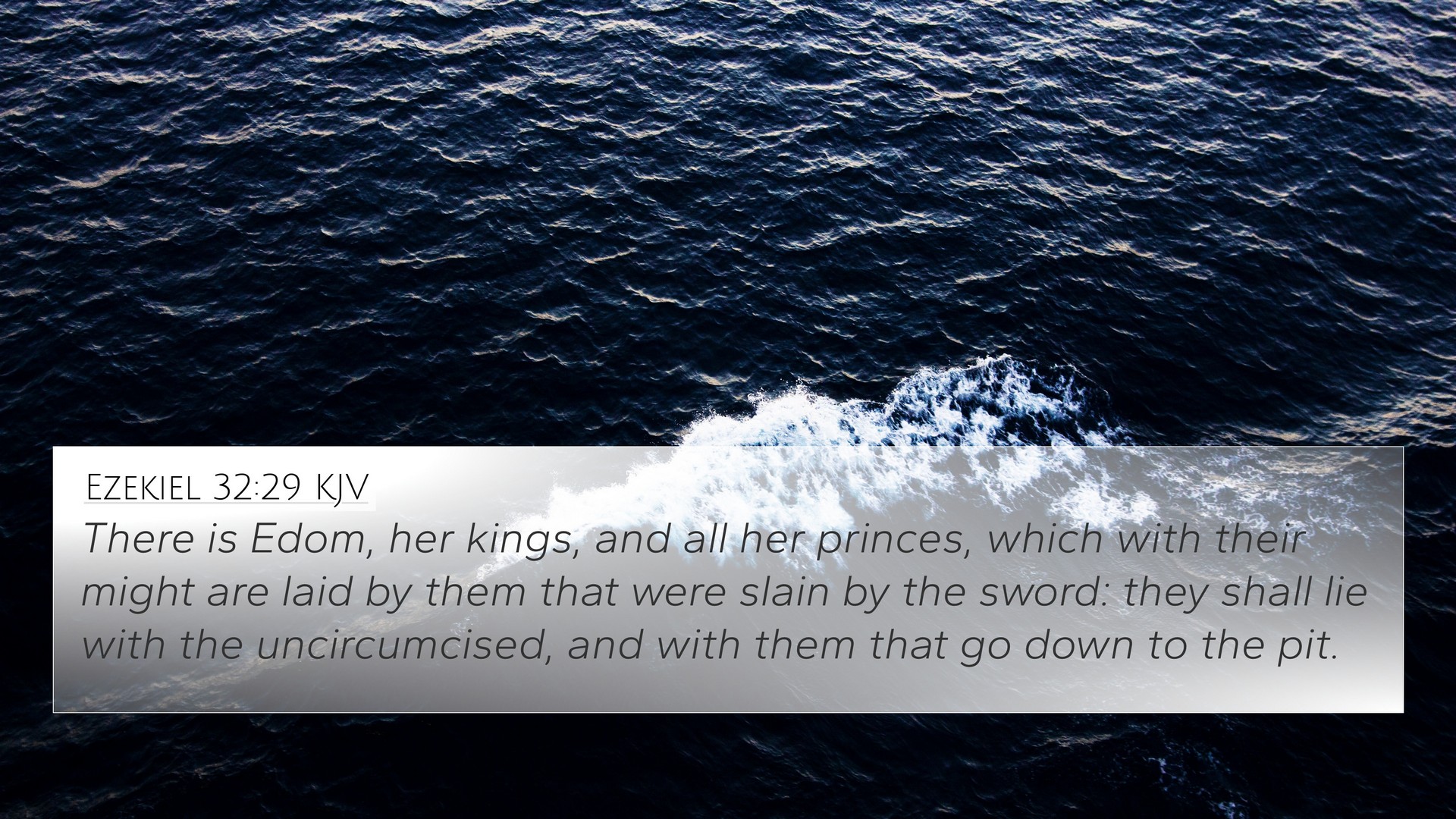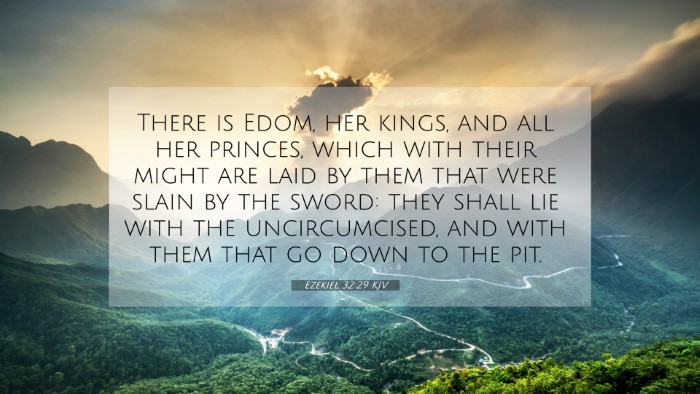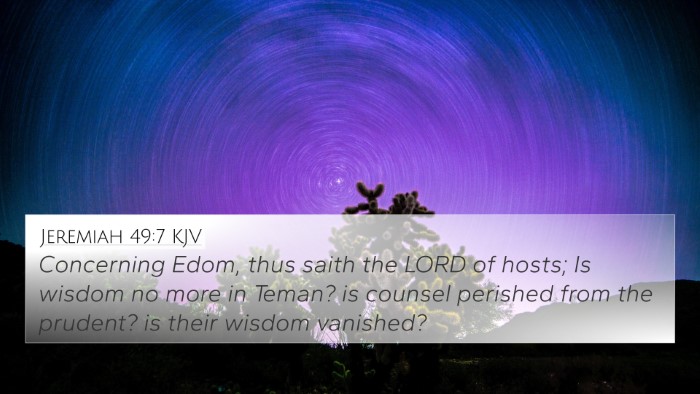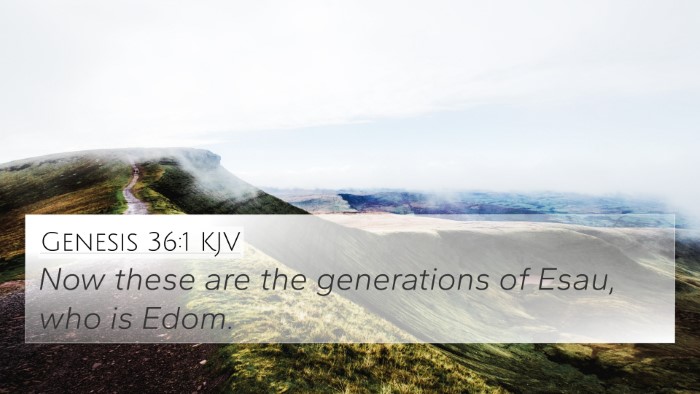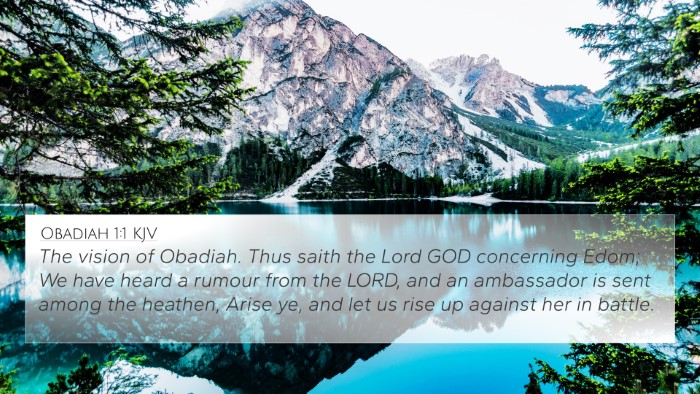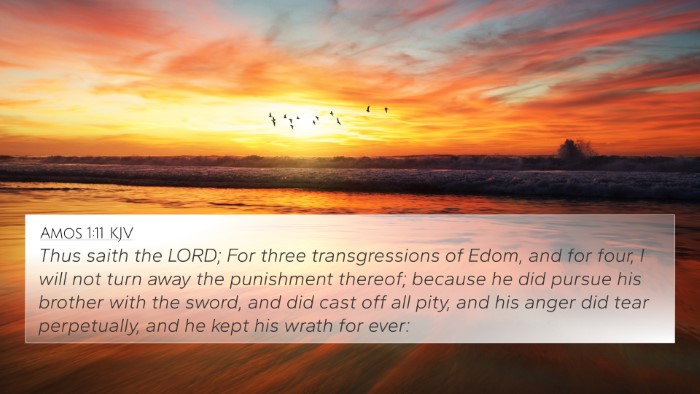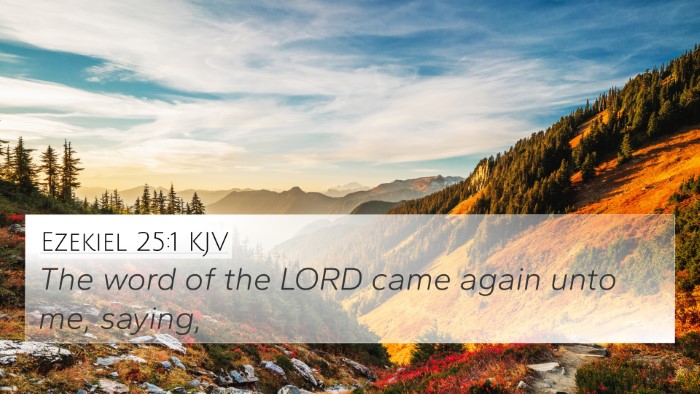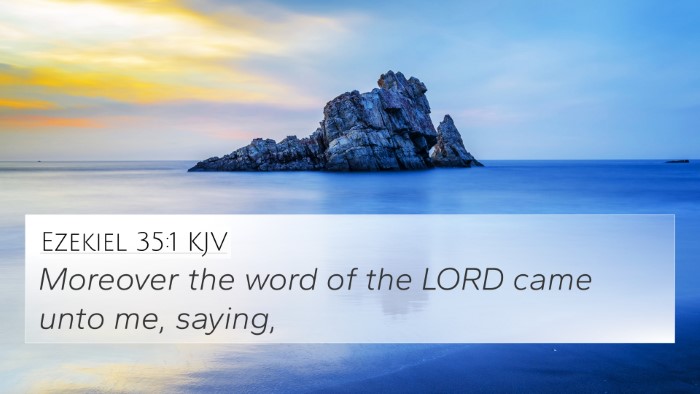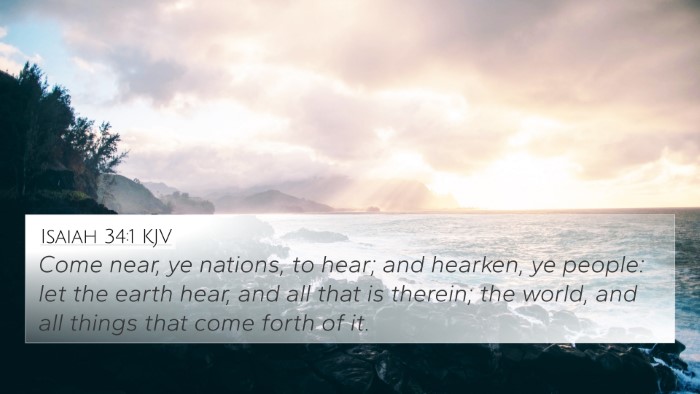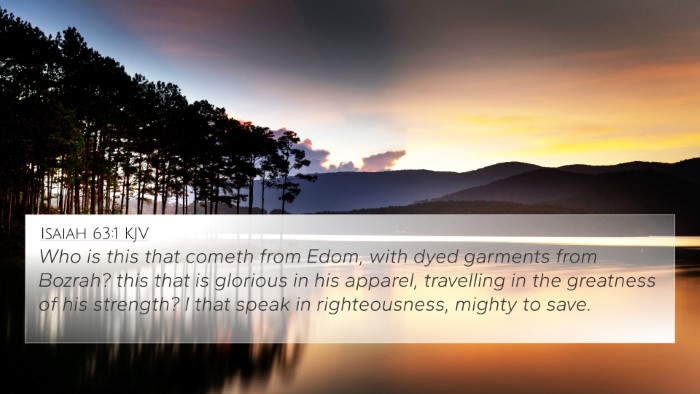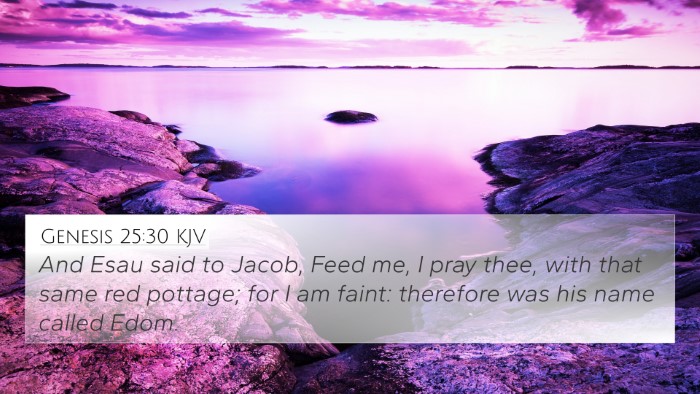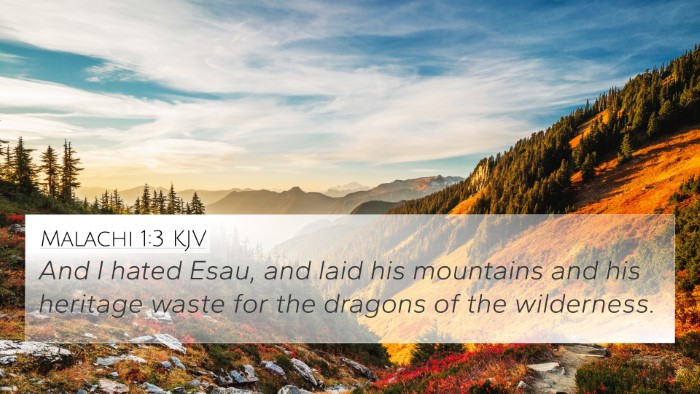Ezekiel 32:29 - Summary and Interpretation
Ezekiel 32:29 reads: "There is Edom, her kings and all her princes, which with their might are laid by the slain of the sword: they shall lie with the uncircumcised, and with them that go down to the pit."
This verse is part of a larger passage in which the prophet Ezekiel delivers prophecies of judgment against various nations. The reference to Edom signifies a message directed toward the descendants of Esau, who represents a nation often at odds with Israel. The thematic elements of judgment, death, and the fate of nations are key to understanding this passage.
Meaning and Insights from Commentaries
The commentaries of Matthew Henry, Albert Barnes, and Adam Clarke provide a comprehensive understanding of this verse and its implications:
- Matthew Henry: Henry emphasizes the inevitability of judgment for Edom. He draws parallels between the fate of Edom and the fates of other nations mentioned in this context, highlighting God's sovereignty over the fate of nations. In a broader interpretation, he illustrates that pride and hostility against Israel lead to divine retribution.
- Albert Barnes: Barnes interprets the context to show that Edom's fate is a result of its long-standing enmity toward Israel. He points out that the phrase "laid by the slain of the sword" reflects the violent end that befalls those who oppose God's people. The uncircumcised reference underscores the spiritual state of those outside the covenant community.
- Adam Clarke: Clarke notes the imagery used to depict Edom's demise and draws attention to the themes of mortality and defeat. He reinforces the notion that this verse signifies a broader message about judgment against prideful nations and the ultimate fate that awaits the wicked.
Cross-References and Thematic Connections
This verse connects to several key texts in the Bible, illustrating the ongoing themes of judgment and divine retribution:
- Isaiah 34:5-6: Speaks of the sword of the Lord being filled with blood, further emphasizing God’s judgment on nations.
- Jeremiah 49:17-18: Details the destruction of Edom, paralleling Ezekiel’s prophetic declarations.
- Obadiah 1:10-16: Describes the violence against Jacob, articulating the reason for Edom’s downfall.
- Psalm 137:7-8: Reflects on the historical enmity between Edom and Israel, underlining the consequences of such hostility.
- Ezekiel 30:4: Similar themes of judgment are mentioned, linking the fates of two nations condemned by God.
- Amos 1:11-12: Pronounces judgment against Edom for its transgressions, reinforcing keywords of violence and retribution.
- Romans 9:13: Indicates God’s sovereign choice, alluding to Old Testament figures and their fates shaped by their actions and relationship with Him.
- Luke 16:22-26: Provides a New Testament perspective on judgment and the fate of the uncircumcised, enriching the understanding of what it means to stand outside the covenant.
- Revelation 20:14: Discusses the final judgment and death, offering a forward look at the fate of those whose names are not found in the Book of Life.
- 2 Peter 2:4: Illustrates God’s judgment on the ungodly, serving as a warning that resonates with the fate of Edom.
Understanding the Verse through Cross-Referencing
Employing cross-references enhances the interpretation of Ezekiel 32:29. By examining related verses, readers can grasp the comprehensive narrative of judgment that the prophet conveys.
Tools for Bible Cross-Referencing: Resources like a Bible concordance or a cross-reference Bible study guide can help readers delve deeper into the connections between scripture, uncovering thematic Bible verse connections that enrich understanding.
Identifying Connections: It's essential to recognize how these biblical texts relate to one another, particularly from the Old Testament to the New Testament. For example, understanding the prophetic nature of Ezekiel alongside the teachings of Jesus on judgment can provide a fuller picture of God's plan for redemption and justice.
Concluding Thoughts
Ezekiel 32:29 illustrates the certainty of God's judgment on nations such as Edom for their hostility towards His people. By integrating insights from various commentaries, exploring cross-references, and recognizing the connections between biblical texts, one gains a deeper understanding of scripture.
Whether through thematic Bible verse connections or examining the broader narrative of judgment outlined in the prophecy, this verse calls for reflection on the spiritual state of both nations and individuals before God.
As you study God's Word, consider how to utilize a Bible cross-reference guide, tools for Bible cross-referencing, and the wealth of available resources to reveal the profound truths that scripture contains.
